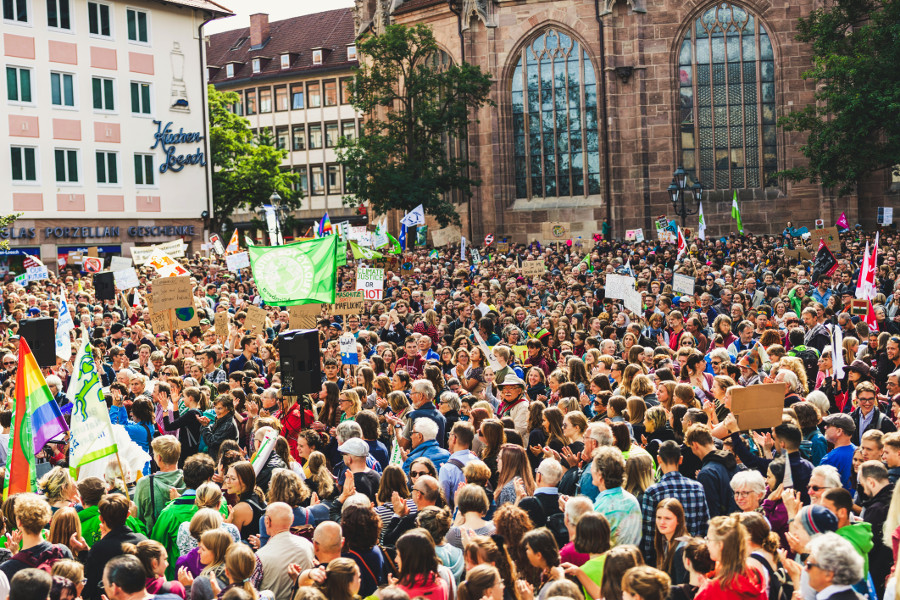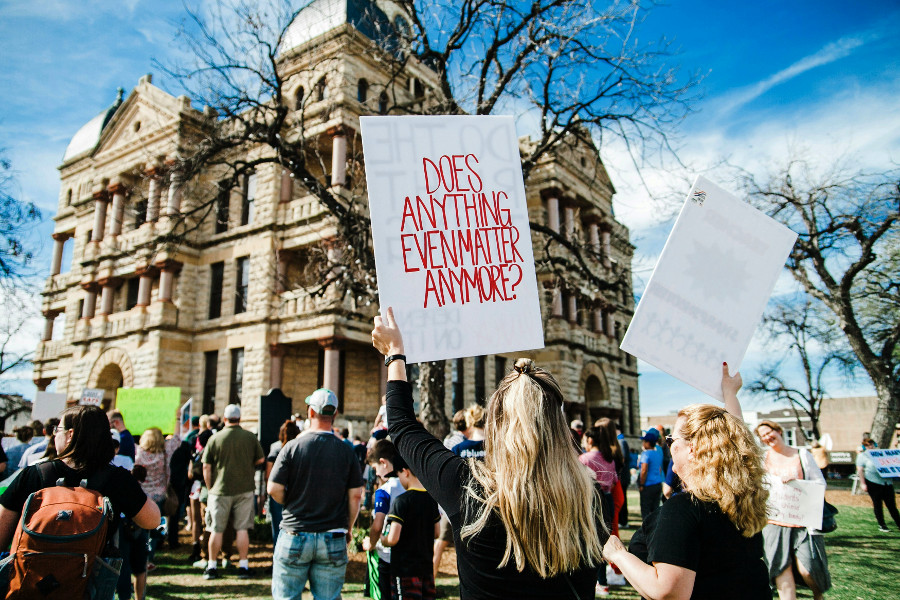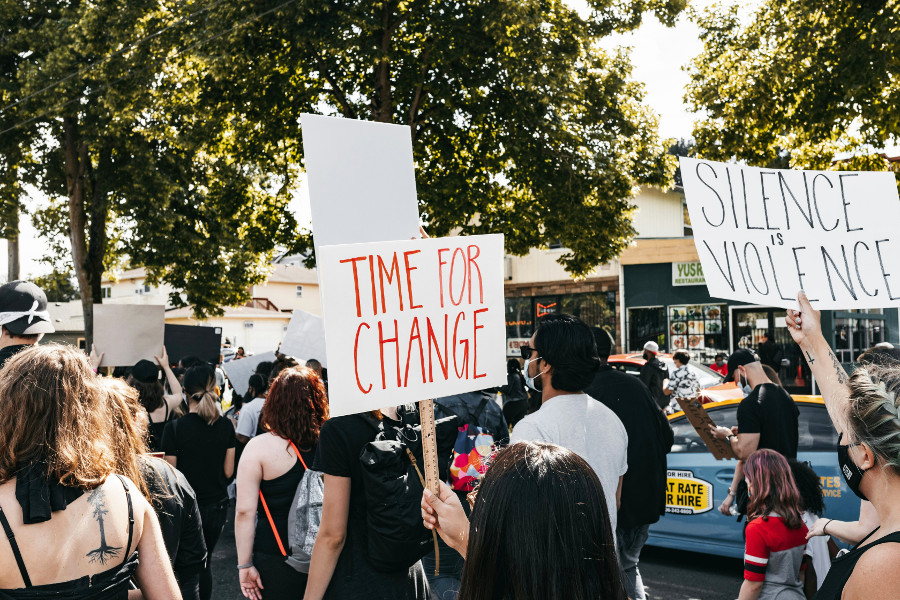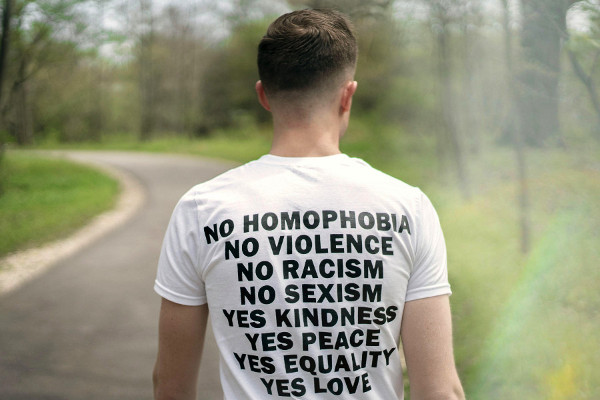The Psychological Power of Protest: How Standing Up for What You Believe in Benefits Your Mental Health
Protests have become a way for people to stand up for what they believe in and make their voices heard in a world that often feels overwhelming and indifferent to their concerns. While many view protests as a platform for social change, they also have a profound impact on the mental health of those who participate. When you march in the streets or gather with others for a cause, you’re not only fighting for justice - you’re also fighting for your own psychological well-being. Protests offer a unique blend of empowerment, emotional release, and connection, making them far more than just political actions. They are an essential practice in reclaiming mental strength and solidarity in an often turbulent world.

Just as nature offers a sanctuary from the stress of modern life, protests provide an opportunity to escape the psychological burdens that can come from feeling powerless, isolated, or unheard. By participating in a protest, individuals tap into their collective power, experience emotional release, and strengthen their connection with others. But how does this work, and why does standing up for what you believe in have such a significant effect on mental health?
Empowerment through Collective Action
Protests are an expression of empowerment. In a world where many people feel like they have no control over the forces shaping their lives, participating in a protest is a powerful way to reclaim that sense of agency. It’s easy to feel insignificant when political, environmental, or social issues seem too big to tackle. Protests, however, offer an antidote to this feeling. They provide a space where individuals can act together to push for change, where their collective power can challenge the status quo.
The psychological benefits of feeling empowered are well-documented. Research shows that people who have a sense of control over their actions and their environment are generally happier and less stressed. Protests help restore that sense of control. When you participate, you are no longer a passive observer of the world’s injustices; instead, you become an active participant in shaping its future. This shift can improve mental health, as it strengthens one's belief in their ability to influence the world around them.
In addition to regaining control, protests enhance self-efficacy - the belief that your actions can lead to meaningful change. This is a central component of mental well-being, as it helps combat feelings of helplessness and builds a person’s confidence in their ability to handle life’s challenges. Whether you’re advocating for political freedoms, social justice, or environmental protection, the act of standing up for something you believe in helps reinforce the idea that your voice matters, and that you are capable of making a difference.
Social Support and Community Building
One of the most underrated aspects of protesting is the sense of community it fosters. At a protest, you are surrounded by people who share your values and concerns. There’s a special kind of solidarity that forms when you stand shoulder to shoulder with others who are fighting for the same cause. This shared commitment can help reduce feelings of isolation and loneliness.
Humans are social beings, and our mental health thrives when we are connected to others. Participating in a protest creates a sense of belonging to something larger than yourself - a community that’s united by a common goal. This is particularly important in times when people feel disconnected from the world around them. Whether the cause is climate change, racial justice, or gender equality, the bonds formed at protests provide a sense of support and camaraderie that can be deeply comforting.
Furthermore, being part of a protest creates a supportive network of individuals who understand your struggles and frustrations. In many ways, protests can function like an emotional support group. The act of being together, sharing experiences, and marching with others who are equally passionate about the cause can provide a tremendous sense of relief and mental healing. When people come together for a collective cause, they find strength not only in their individual voices but also in the strength of the group. This shared purpose can be a crucial source of mental resilience, particularly for those feeling disillusioned or disheartened by the world.

Emotional Release and Catharsis
One of the key emotional benefits of participating in a protest is the opportunity for catharsis - the release of pent-up emotions that have been building for a long time. Protests provide a space to express anger, frustration, and even sadness in a healthy and constructive way. In many cases, these emotions are tied to deep feelings of injustice or political oppression. By participating in a protest, individuals can release these emotions in a communal environment, which has a profound effect on emotional regulation.
Catharsis is a concept rooted in psychology, referring to the process of expressing strong emotions to achieve emotional relief. Research suggests that emotional release is critical for mental well-being, as it helps people manage stress and avoid emotional burnout. In the case of protests, this release is not just about venting frustration; it’s also about making your voice heard and taking action against a system that feels unjust. Whether it’s through chanting, holding signs, or simply being present, protests allow individuals to let go of the emotional weight they’ve been carrying and experience a sense of relief.
Being part of a protest also offers the validation that many people need in order to process their emotions. When individuals are facing systemic oppression or inequality, their emotional responses - whether it’s anger, fear, or sadness - are often dismissed or invalidated. Protests provide a platform where those emotions are not only acknowledged but also shared by others. This sense of emotional validation is incredibly powerful, as it allows individuals to feel heard and understood. In this way, protests can act as a form of emotional healing, providing space for both personal expression and collective release.
Enhanced Sense of Purpose and Meaning
In addition to providing emotional release, protests offer a profound sense of purpose. When people participate in protests, they’re not just standing up for their own beliefs - they’re standing up for something much bigger than themselves. This sense of purpose, whether tied to social justice, environmental protection, or political freedoms, helps individuals feel that they are contributing to a meaningful cause. This can be a powerful antidote to the feelings of emptiness and uncertainty that often accompany modern life.
A sense of purpose is a key component of mental health. Studies have shown that individuals who feel that their actions align with their values and contribute to something meaningful tend to experience greater life satisfaction and overall well-being. Protests allow people to channel their energy into something that matters, and in doing so, they find greater fulfillment. The act of standing up for a cause can give participants a clearer sense of identity and direction, which can lead to long-term psychological growth.
For many, being involved in activism is a way to align their personal values with their actions. The process of engaging in protests helps solidify this alignment, as individuals feel more connected to their goals and more certain of their place in the world. This sense of purpose can also lead to a stronger sense of self-esteem, as people begin to define themselves not by what they own or how others perceive them, but by their commitment to a cause they believe in.

Types of Protests and Their Psychological Impact
While the psychological benefits of protesting are universal, the type of protest can influence how those benefits are experienced. Different causes carry different emotional contexts, which can shape the mental health outcomes of participation.
- Political Protests: These protests are often motivated by the desire to challenge governmental policies or fight for political rights. The psychological benefit here lies in the ability to reclaim power from oppressive systems and advocate for the freedoms we hold dear. For those who feel politically disenfranchised, these protests provide a chance to reclaim their voice and assert their rights.
- Environmental Protests: Climate change and environmental degradation are issues that provoke deep feelings of concern. Participating in environmental protests allows individuals to take action against a crisis that threatens the future of the planet. The psychological benefit is rooted in the sense of responsibility and stewardship, as individuals work to preserve the earth for future generations.
- Local or Community Protests: These protests are more localized and often address immediate, community-level issues such as police brutality, housing inequality, or labor rights. The psychological benefit here is the ability to enact tangible, local change, and the personal satisfaction that comes from improving one's immediate environment.
- Social Justice Protests: Whether advocating for racial equality, gender rights, or LGBTQIA+ liberation, social justice protests allow individuals to align their actions with their values and challenge systemic discrimination. The psychological rewards are particularly powerful here, as participants not only fight for social justice but also experience personal healing and solidarity with others.
Each type of protest offers its own unique emotional and psychological benefits, but all share the ability to foster empowerment, connection, and purpose.
Dealing with Anxiety and Political Stress
In today’s politically charged world, many people experience heightened anxiety and stress. The constant barrage of news about injustice, inequality, and crisis can feel overwhelming, leaving people unsure of how to cope. Protests provide a way to confront this stress head-on, offering a space for individuals to take action in the face of uncertainty.
For those dealing with political anxiety, participating in a protest can provide a sense of control and agency. Rather than feeling helpless in the face of global issues, protesters are taking concrete steps to challenge the status quo. This action provides relief from the sense of powerlessness that often accompanies political stress, helping individuals feel like they are making a difference.
Conclusion
Protests are more than just a means to an end - they are a powerful tool for strengthening mental health. By participating in collective action, individuals can experience a sense of empowerment, emotional release, and connection. Whether the cause is political, social, or environmental, the act of standing up for what you believe in provides a profound sense of purpose and meaning. As society continues to face challenges, it’s important to remember that protesting not only benefits the world but also contributes to the personal growth and well-being of those who participate. So next time you join a protest, remember that you’re not just fighting for change - you’re fighting for your mental health, too.



